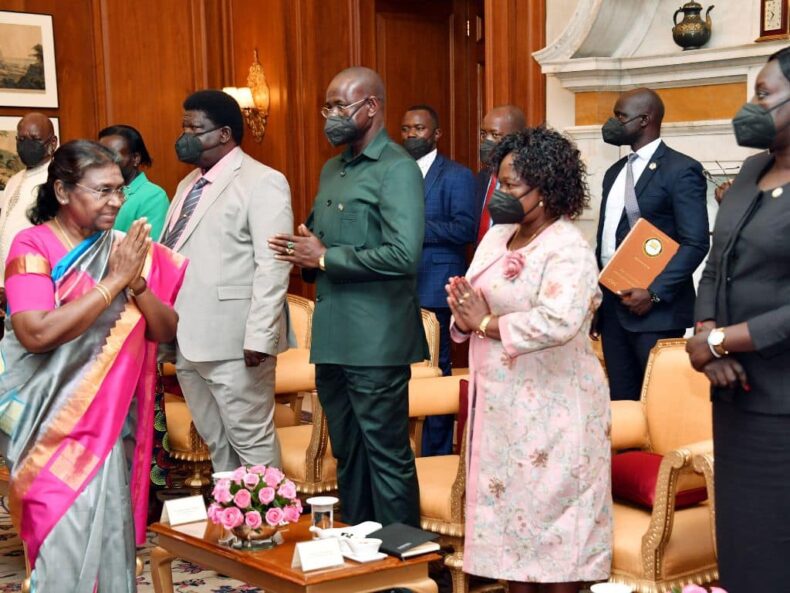
Table of Contents
President Droupadi Murmu welcomed a South Sudanese parliamentary delegation at the Rashtrapati Bhavan, saying India is delighted to be a significant troop contributor to the UN Peacekeeping Operations in South Sudan. The group was led by the Speaker of the Transitional National Assembly, Jemma Nunu Kumba.
India is determined to become a dependable development partner for South Sudan, according to President Murmu. She expressed confidence that the training and capacity-building opportunities provided by the ITEC and ICCR scholarship programs supplied by India will help South Sudanese youth.
The President stated that South Sudan’s ongoing political process, including the creation of a new Constitution, may profit from India’s experiences with parliamentary democracy. She said that India will provide South Sudan with its entire assistance during this process.
watch this: A Parliamentary delegation from South Sudan called on President Droupadi Murmu at Rashtrapati Bhavan
India-South Sudan Relations
In 2011, shortly after South Sudan gained independence, India recognized the country. India maintains embassies in Juba and New Delhi for South Sudan.
In February 2019, the two nations signed an Agreement on Foreign Office Consultation (FOC). Annual consultations at the level of director general or an equivalent must take place, preferably in Juba and New Delhi. The Juba meeting, which will be the first, is still scheduled.
Presently, about 1000 Indians are residing in South Sudan.
All-Women Peacekeeping Platoon
A battalion of soldiers made up entirely of women was recently sent from India as part of the Indian Battalion to the UN Interim Security Force in Abyei, on the border between South Sudan and Sudan.
The 2004 Abyei Protocol on the Settlement of the Abyei Conflict in the Comprehensive Peace Agreement (CPA) that ended the Second Sudanese Civil War (the Abyei Region) has given this border region between South Sudan and Sudan “special administrative status.”
Since the first all-female contingent was sent to Liberia in 2007, this is the largest single unit of Indian women peacekeepers in a UN assignment.
Salva Kiir’s Parliamentary Address

President Salva Kiir of South Sudan issued multiple orders to several departments during the first session of the new parliament. He gave the Ministry of Finance and Planning instructions to coordinate South Sudanese national efforts to establish their legitimate position in the area.
He also asked the country’s Foreign Affairs Minister to press for the easing of the sanctions placed on the nation by the United Nations Security Council, which included a weapons embargo, and to pursue a good foreign policy that will restore the nation’s status on the international stage.
The Foreign Affairs Minister will closely collaborate with African unions to settle border conflicts with their neighboring nations, as per the President’s instructions.
The President also brought up the border incident between Kenya and South Sudan that occurred at the checkpoint last month. Nairobi denied it, accusing Juba of sending a diplomatic package on the subject.
The National Transitional Committee (NTC) and the Joint Defense Board (JDB) have been instructed by the President to complete phase one of Chapter 11 on security arrangements as soon as possible. The committee has already begun working on Chapter 5, and the Ministry of Justice and Constitutional Affairs is getting ready to host a conference to educate the nation about the proposed creation of the Commission of Truth, Reconciliation, and Healing (CTRH).
According to President Kiir, his administration would continue to follow a foreign policy based on the ideas of collaboration and avoid meddling in the internal affairs of other nations.
He declared that the nation will soon convene a summit on the economy to bring sectors together and solve basic concerns, acknowledging that the nation is experiencing economic consequences. The President urged authorities to make every effort to put the remaining balance of peace into effect.












